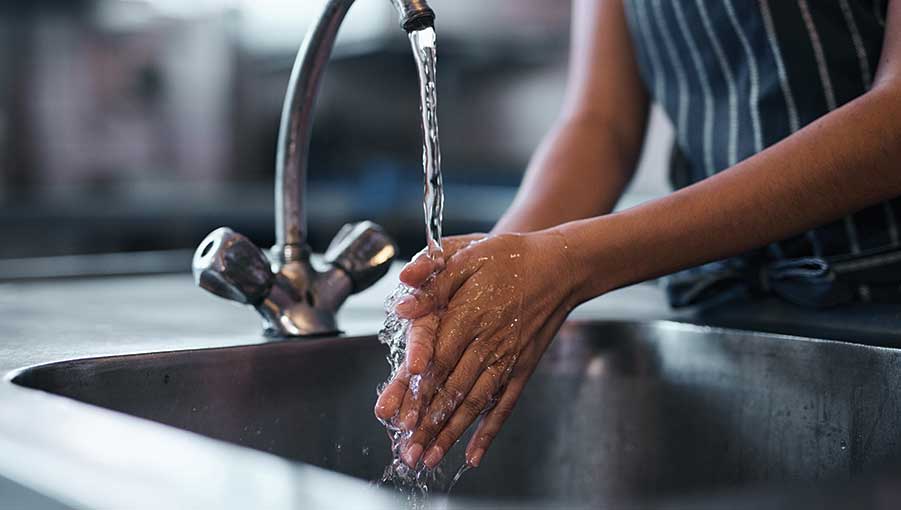
Resources - Blog
New Health and Hygiene Requirements of Food Handlers
In compliance with the latest updates to the Australia New Zealand Food Standards Code, all new food safety regulations must be implemented by December 8, 2023.
These pivotal changes directly impact Food Handlers in establishments such as restaurants, cafés, pubs, and hotels. As of Friday, December 8, 2023, it becomes the responsibility of your business to ensure that all Food Handlers are not only trained but possess the essential skills and knowledge in food safety and hygiene.
Who is a food handler?
A food handler is anyone who works in a food business and handles food, or surfaces that are likely to come into contact with food (e.g. cutlery, plates).
A food handler may be involved in food preparation, production, cooking, display, packing, storage or service.
Responsibilities of food handlers
Under the Food Standards Code, a food handler must take all reasonable measures not to handle food or food surfaces in a way that is likely to compromise the safety and suitability of food.
Food handlers also have specific responsibilities relating to health and hygiene.
Health requirements
Any food handler with symptoms or a diagnosis of an illness (such as vomiting, diarrhoea or fever) must:
- report that they are ill to their employer or supervisor
- not handle food if there is a reasonable likelihood of food contamination as a result of the illness
- if continuing to engage in other work on the food premises, take all practicable measures to prevent food from being contaminated
- notify a supervisor if they know or suspect they may have contaminated food.
Effective hand washing
Hand washing is one of the most important actions you can take to prevent foodborne illness.
Food handlers must:
- wash their hands using hot, soapy water and dry them thoroughly with single-use paper towels
- wash their hands whenever they are likely to be a source of contamination (after using the toilet, smoking, coughing, sneezing, using a handkerchief, eating, drinking or touching the hair, scalp or body)
- wash their hands before handling ready-to-eat food and after handling raw food.
Hygiene requirements
Food handlers must:
- not eat, sneeze, blow, cough, spit or smoke around food or food surfaces
- take all practicable measures to prevent unnecessary contact with ready-to-eat food
- tie back long hair, and take all practical measures to prevent hair contaminating food
- ensure clothing is clean
- cover bandages and dressings on exposed parts of the body with a waterproof covering
- remove loose jewellery and avoid wearing jewellery on hands and wrists.
Use of gloves
The Food Standards Code does not require food handlers to use gloves. Even when wearing gloves, in many situations it may be preferable to use utensils such as tongs or spoons.
Gloves must be removed, discarded and replaced with a new pair in the below circumstances:
- before handling food
- before handling ready-to-eat food and after handling raw food
- after using the toilet, smoking, coughing, sneezing, using a handkerchief, eating, drinking or touching the hair, scalp or body.
Employer responsibilities
A food business must:
- ensure food handlers do not handle food if there is a possibility of contamination
- maintain easily accessible handwashing facilities and supplies of hot running water, soap and single-use paper towels
- ensure all food handlers have appropriate skills and knowledge in food safety and food hygiene.
This can be done by either completing a food handler training course, or being able to clearly demonstrate their skills and knowledge.
Food Safety Supervisor
Under the Food Standards Code (Standard 3.2.2) all food handlers must have general skills and knowledge in food safety and hygiene. The Code also requires that certain businesses in the hospitality and retail food service sector appoint at least one trained Food Safety Supervisor (FSS) who is reasonably available to advise and supervise food handlers.
FSS training is tied to nationally recognised units of competency in the Vocational Education and Training (VET) System.
For more information how to become a Food Safety Supervisor, including training requirements, visit Allara Learning.
How can Allara Global assist you?
Allara Global is your trusted partner in ensuring your team is ready to meet these requirements head-on.
Our new Basic Food Safety for Handlers online course is designed to:
- Meet training requirements: Rest assured that your Food Handlers are equipped with the necessary skills and knowledge.
- Streamline compliance tracking: Simplify the process of monitoring and verifying training completions.
- Ensure rapid implementation: Get your team up to speed promptly with our user-friendly online learning platform.
Don't wait until the last minute! Act now and secure your business's compliance and reputation. The deadline is swiftly approaching, and we're here to help you every step of the way.
Learn More: Click below to explore our Basic Food Safety for Handlers course.
Should you have any questions or need assistance, please do not hesitate to contact us. We're here to make your transition to the new food safety requirements as smooth as possible.
Related posts
Resources - Blog
New Food Safety Changes for Food Handlers
New requirements take effect starting on December 8, 2023. Immediate action is required to ensure compliance.
Resources - Blog
10 Common Rookie Bartender Mistakes & How to Prevent Them
Glaring mistakes rookie bartenders make and how to prevent them.
Resources - Blog
How long should a training course be?
This article will give you tips for determining a length that’s best for your learners and explore the advantages and disadvantages of different course lengths.



